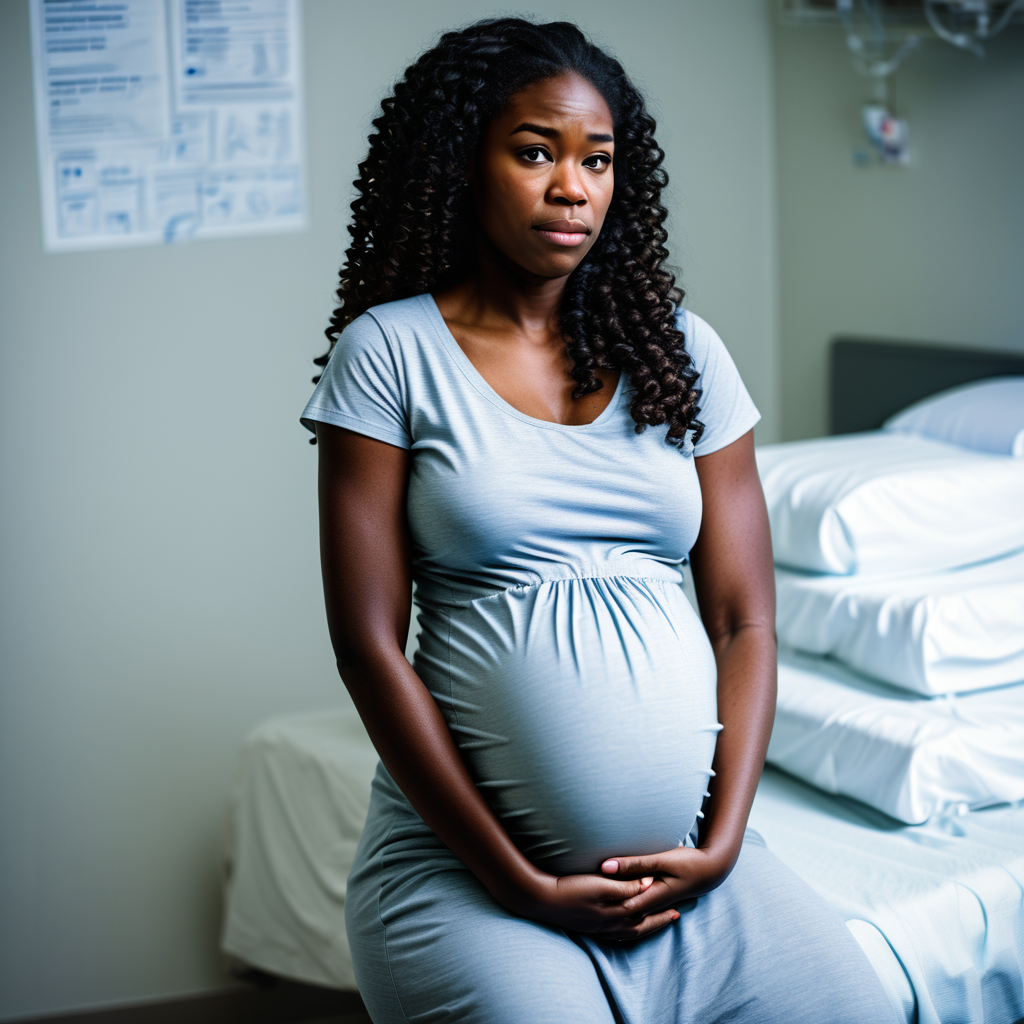The Black Maternal and Infant Healthcare Crisis: We Need to Talk About This
Hey, can we have a real conversation for a minute? Because there’s something that’s been weighing on my heart—and it should be on everyone’s radar. Black mothers and babies are dying at alarmingly high rates in the U.S., and it’s not because Black women aren’t strong or resilient. It’s because the system wasn’t built to protect us.
This isn’t just a random statistic. It’s deeply personal for so many of us. If you’re a Black or Brown woman, you’ve likely heard stories—maybe even lived them—about feeling ignored, dismissed, or outright mistreated during pregnancy or childbirth. And honestly? It’s not okay.
The Numbers Don’t Lie
Let’s get straight to it:
- Black women are three to four times more likely to die from pregnancy-related causes than white women.
- Black infants are more than twice as likely to die before their first birthday than white infants.
These aren’t just numbers; they’re lives. They’re our sisters, our friends, our daughters, and our babies.
And here’s the kicker: it’s not because of income or education. Serena Williams, one of the greatest athletes in the world, almost died after childbirth because doctors didn’t listen to her. If she’s not “safe,” what does that mean for the rest of us?
The Role of Racism in Healthcare
Let’s be real: racism doesn’t stop at the hospital door. Too often, Black and Brown women are:
- Not Believed: When we say something’s wrong, we’re brushed off or told it’s “normal.”
- Under-Treated: Studies show Black patients are less likely to receive adequate pain relief because of racist myths about our ability to tolerate pain.
- Over-Policed: Our parenting is scrutinized in ways that others don’t experience.
It’s exhausting, infuriating, and, frankly, deadly.
Health Issues Often Overlooked in Black Mothers
One of the most dangerous consequences of racism in healthcare is the way critical health issues are overlooked or dismissed during pregnancy. Here are a few conditions that disproportionately affect Black mothers—and are often ignored until it’s too late:
-
Preeclampsia and Eclampsia
- These conditions cause dangerously high blood pressure and can lead to seizures, stroke, or even death if untreated. Black women are 60% more likely to develop preeclampsia than white women, but their symptoms—like swelling, headaches, and vision changes—are too often brushed off.
-
Gestational Diabetes
- Black women are at a higher risk of developing gestational diabetes, which can lead to complications for both mother and baby. Despite the risks, many Black mothers report inadequate monitoring or delayed diagnoses.
-
Postpartum Hemorrhage
- Severe bleeding after childbirth is a leading cause of maternal mortality. For Black mothers, delayed or insufficient care during labor increases the risk of this life-threatening complication.
-
Mental Health Concerns
- Anxiety, depression, and postpartum mental health challenges are frequently overlooked in Black mothers due to stigma and provider bias. When we do speak up, our concerns are often minimized or dismissed altogether.
-
Cardiovascular Issues
- Heart disease is a leading cause of maternal mortality, especially among Black women. Symptoms like shortness of breath, chest pain, or fatigue can be misdiagnosed—or ignored—because of implicit biases in how providers assess our pain.
Stories We’ve Heard (and Lived)
Raise your hand if you’ve ever felt invisible during a doctor’s visit. Maybe it was the nurse who talked about you instead of to you. Or the OB who dismissed your swelling and shortness of breath as “just anxiety.”
My Story: When Healthcare Dismissal Gets Personal
I know this crisis all too well because I’ve lived it. When I was pregnant with my youngest daughter, I experienced firsthand what it feels like to be dismissed by healthcare professionals.
I started having palpitations—scary, heart-racing episodes that left me feeling like something was seriously wrong. But when I went to the doctor, no one thought to take my temperature or even check my blood pressure. Not once. After two trips to the doctor and eventually ending up in the emergency room, I was finally sent to the cardiac unit.
You’d think they’d find something serious, right? Instead, I was told I had a high fever, which was causing the palpitations. That was it. No urgency. No follow-up. Just a shrug and a pat on the back.
It wasn’t until after childbirth that I was diagnosed with acute peripartum cardiomyopathy—a rare but serious heart condition that can develop in the last months of pregnancy or after delivery. Looking back, I can’t help but wonder: how much earlier could this have been caught if someone had just listened to me?
These aren’t isolated incidents—they’re part of a pattern. And when you’re pregnant or holding your brand-new baby, the last thing you should have to fight for is basic respect.
What Needs to Change
We deserve better. Our babies deserve better. So, what can be done?
- Listen to Us: Healthcare providers need to trust Black women when we say something’s wrong. Period.
- Diversify Healthcare: We need more Black doctors, midwives, and doulas who understand our experiences.
- Advocate for Policy Change: Better access to prenatal care, postpartum care, and mental health support is a must.
- Call Out Racism: Hospitals and clinics need to hold staff accountable for implicit and explicit bias.
Let’s Be Each Other’s Advocates
Here’s the thing: we’re not powerless. One of the most beautiful things about our community is how we show up for each other. We have the power to demand change and to support each other in the meantime.
- Hire a Doula: Studies show doulas improve birth outcomes, especially for Black mothers.
- Speak Up: Don’t be afraid to ask questions or get a second opinion.
- Share Resources: If you’ve had a positive experience with a provider, shout it from the rooftops.
This isn’t just a “healthcare issue.” It’s a justice issue. It’s a human issue. And the more we talk about it, the harder it becomes for the system to ignore us.
So let’s keep talking. Let’s demand better care, better policies, and better outcomes. Because our lives—and our babies’ lives—are worth it.

